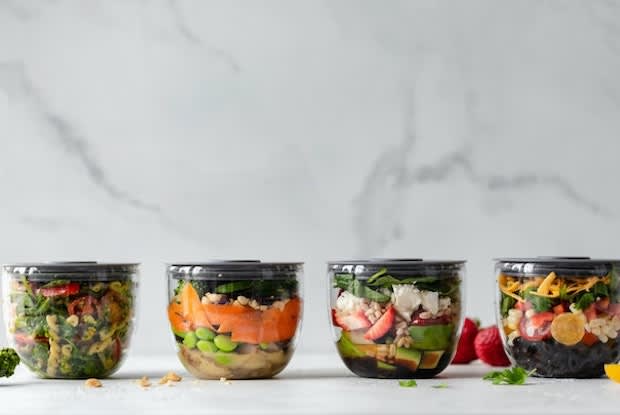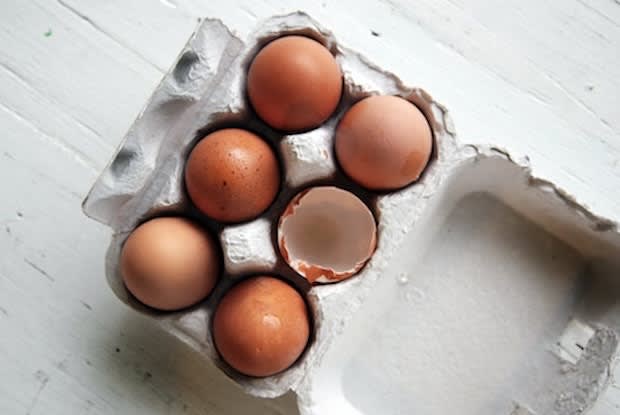Table of Contents
I. Food Preparation and Meal Planning
Living with ulcerative colitis (UC) can come with painful and uncomfortable symptoms that can severely affect a person’s quality of life. There is no direct cause of ulcerative colitis, but certain foods and activities can increase this condition's severity. A combination of genetics and hereditary factors can lead to the development of ulcerative colitis. This condition involves chronic inflammation of the colon, which leads to unpleasant symptoms like bloody diarrhea, abdominal pain, rectal bleeding, fatigue, fever, weight loss, and an urgency to defecate. [1]
There are several medications like Imuran (azathioprine), Asacol (mesalamine), and Neoral (cyclosporine) that can help treat symptoms of UC. Medications can help control symptoms, but you may also need to tailor some lifestyle habits to help improve your daily life. There is no cure-all for ulcerative colitis, but it can help to avoid certain foods and enact new daily habits. Read on to learn more about tips to improve your ulcerative colitis condition. [1]
Food Preparation and Meal Planning
Planning your meals can help you control your portion sizes and food intake. Keeping a food journal is a good tip to keep track of any foods or activities that may interact adversely with your UC. Meal planning allows you to know exactly what you are putting in your food to avoid any trigger ingredients. Doctors recommend eating four to six small meals a day instead of the typical breakfast, lunch, and dinner.
It is also essential to stay hydrated. You will know you are hydrated if your urine is light yellow to clear. You can stay hydrated by drinking water, consuming broth, or tomato juice. Avoid straws when drinking, so as not to ingest extra air that may cause gas in the stomach. Before you know your food triggers, it is a good idea to keep your cooking techniques simple. Boiling, grilling, steaming, and poaching your foods and avoiding extra spices may be in your best interest. [2] If you are experiencing a flare-up of ulcerative colitis, you may want to make your diet as simple as possible. If your UC is severe, you may be experiencing excessive diarrhea, which can result in dehydration. In order to avoid dehydration, it is essential to get plenty of vitamins and minerals in your diet. These symptoms may be more severe if you are also experiencing a stricture (narrowing the large intestine caused by inflammation or scar tissue). It is smart to avoid fibrous foods because they are hard to digest. Even fruits and vegetables may be off the table for some with UC. The seeds and skins of certain fruits and vegetables can further irritate UC. It is also recommended to avoid the following foods: As mentioned earlier, everyone may have their specific triggers for their UC condition. It is important to talk to your doctor or a dietitian for ideas on how to figure out which foods work best. Eating a balanced diet is a good idea for everyone, but it can significantly impact someone living with colitis. Even if you are in remission, your doctor recommends maintaining a nutrient-rich diet. You can introduce new food slowly but do so with caution. There are many foods that you can eat to stay healthy and hydrated. The following foods are typically non-reactive to the gastrointestinal system: For many people with ulcerative colitis, it may feel nearly impossible to work out during a flare-up. High-impact exercises like running can jostle the intestines and make your UC worse. Many traditional exercises can lead to stomach pain and persistent diarrhea and leave you with little energy. If you live with ulcerative colitis for a long time, it is important to find an exercise regimen. This may take a lot of trial and error, but your doctor may recommend exercises that do not impact your colon. Some low-impact exercises can include: UC can be draining, and exercise can improve your mental health and reduce your risk for colon cancer. If you exercise regularly, your intestines will contract more frequently and help food pass through the digestive system. If a food passes quickly through the system, it can reduce gastrointestinal exposure to harmful substances or carcinogens. [3] The body heals itself while we sleep. If you are prone to sleep disturbances during the night, then your UC condition may worsen. During a flare-up, you may have to get up several times a night to use the bathroom. Studies from the Center for Crohn's and Colitis in Evanston, Illinois found that a lack of sleep can worsen flare-ups and decrease a person's pain threshold, which can make pain and fatigue more severe. [4] To avoid waking up in the middle of the night, you may want to eat earlier in the day. You may want to make lunch your largest meal and eat dinner early in the evening. Eating lighter, more digestible foods can help improve sleep. A regular bedtime routine also improves sleep quality. You may want to avoid using blue-lit screens one or two hours before bed. Going to sleep around the same time each night can also improve sleep quality. [4] When you have UC, leaving the house can be a real gamble, especially if you are experiencing a flare-up. Many people may feel nervous about leaving the house if they do not know the nearest bathroom location. This can lead to isolation and mental health problems, but apps are available to help ease anxiety. There are several bathroom-locator apps you can download, which have bathroom descriptions, their level of cleanliness, and handicap accessibility. It is also a smart idea to keep some extra supplies in your car. If you have a car, you can keep an extra pair of clothes and rolls of toilet paper in the trunk for emergency purposes. You may never need to use them, but it may make someone feel more comfortable leaving the house if they have to go out during a flare-up. [5] The content in this article is intended for informational purposes only. This website does not provide medical advice. In all circumstances, you should always seek the advice of your physician and/or other qualified health professionals(s) for drug, medical condition, or treatment advice. The content provided on this website is not a substitute for professional medical advice, diagnosis or treatment.
Eating During a Flare-Up
Colitis-Friendly Foods

Exercise
Get Plenty of Rest

Leave the House Prepared
